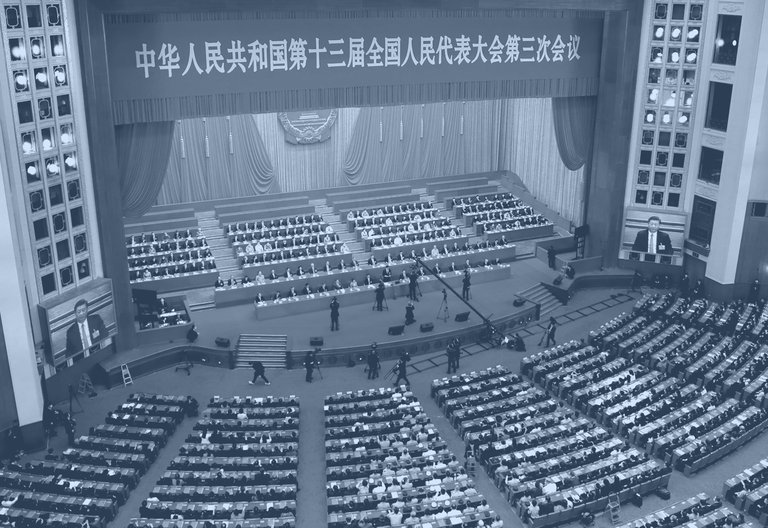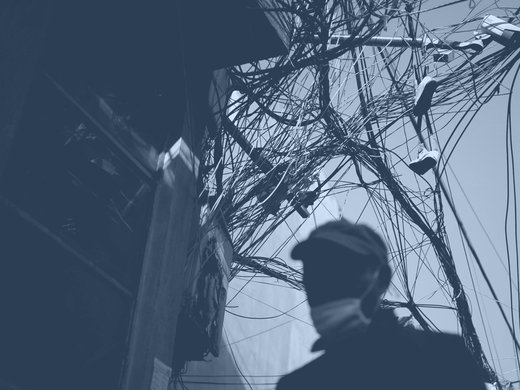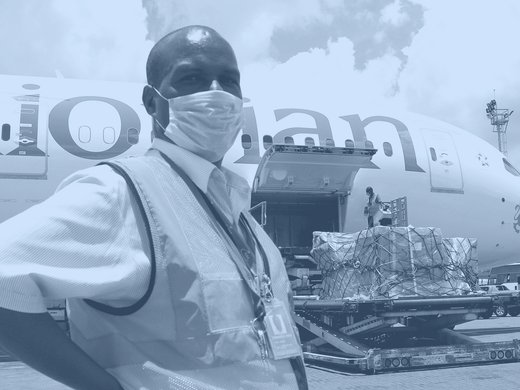he rapid and deadly spread of the coronavirus has wreaked havoc around the world. As of mid-July 2020, it has already led to over 14 million confirmed cases of sickness and claimed more than 600,000 lives. It has also caused the most serious economic recession since the Great Depression, involving massive unemployment and bankruptcies. With no cure or vaccine on the horizon, the situation will get worse before it gets better. Some of the pandemic’s damages — as traumatic and painful as they are — will be relatively short-lived. Other consequences will have much longer-term influence on societies.
One of these longer-term consequences has to do with China’s international relations, in particular its relations with the Western world. As an emerging economy whose rise has been a focus of worldwide fascination, or anxiety, since the late twentieth century, China has also been a central actor in the unfolding of the current global pandemic. As far as we know, the first sign of trouble came at the end of 2019, when a cluster of pneumonia cases emerged in the central Chinese city of Wuhan. Chinese government officials’ knee-jerk reaction was to hide the bad news. But when it became clear the problem was serious and worsening by the day, Beijing took the drastic measure of locking down Wuhan with its 11 million residents. But the virus was already spreading to other parts of the world. In March 2020, the World Health Organization declared COVID-19 — the disease caused by the virus — a global pandemic. Many countries followed China’s example and locked down their cities to various degrees in an effort to slow down the spread of the virus. Since April, China has brought the pandemic within its borders under control and gradually reopened its economy and society. A couple of months later, a number of other countries have also started their own phased reopening. But there are already indications in China and elsewhere that the virus is striking back.
The COVID-19 pandemic has come at a critical juncture in China’s relations with the West. In recent years tension has increased in these relations as a result of the growing material competition between China and the United States and the salient normative divergence between the Chinese politico- economic systems and their Western counterparts. The pandemic has magnified this tension through its dual effect. On the one hand, it has increased the appeal of the Chinese Communist Party (CCP) in the eyes of many Chinese and fanned the nationalist sentiment among certain sectors of the population. On the other hand, it has further undermined China’s international image and solidified the resolve of Western governments to take a hard line toward China. This unfortunate combination does not bode well for the relations between China and the West in the coming years.
The Chinese government initially mishandled the virus, playing down its danger and suppressing information. When it became clear that the public health problem could turn into a major political crisis, Beijing quickly removed the local officials and blamed them for the mismanagement of the situation. In the following months, it has forcefully contained the virus by quarantine, contact tracing and medical mitigation. The official statistics to date of fewer than 84,000 cases and 5,000 deaths in the country compare favourably against many other countries. The contrast is especially striking with the United States, which has so far reported about 3.8 million cases and more than 140,000 deaths. When the rest of the world was caught totally unprepared for the pandemic, China sent much-needed masks, testing kits, ventilators and personal protection equipment to more than 100 countries, including to the United States, Canada and European nations.
Chinese media have been full of praises of the institutional advantages of a CCP-led regime and of China’s leadership role in the global fight against the pandemic. The general public seems to have bought the official narrative. Even Chinese nationals overseas have come to see China as the safest place in the world, trying to rush back home for refuge. Not surprisingly, China’s relative success in confronting the pandemic has added to the national pride and nationalist sentiment among many Chinese. This is especially obvious among the younger generations, who have grown up with the rise of China. If the 2008 global financial crisis had already diminished US status in the world, the disastrous failure of Donald Trump’s administration in containing COVID-19 has worsened their view of the United States and further boosted their confidence in the Chinese model.
In contrast to its improved domestic credibility, the Chinese government’s international standing has plummeted during the pandemic. Public opinion about China has turned from bad to worse in Western countries. Already frustrated by what they see as China’s unfair competition and suspicious of Chinese ambitions to overturn the existing international order, Western countries have been further exasperated by China’s mishandling of the pandemic’s outbreak and by their glaring dependence on China in the global supply chain of critical goods. While the Trump administration has political reasons to blame China for the spread of the virus and to restrict economic, technological and even educational relations with China, other Western governments have also taken a tougher stand against China. Australia has led the demand for an independent inquiry into the origins of the virus and its spread. The European Union has placed renewed emphasis on normative concerns in its relations with China and demanded greater reciprocity in trade and investment.
The Chinese government recognizes its position in an increasingly hostile international environment. Perhaps as a defence mechanism, Chinese diplomacy has taken on unprecedented assertiveness in recent months, as manifested by its clash with neighbouring countries over territorial issues; confrontation with the international community on human rights, Hong Kong and Taiwan; the arbitrary detention of foreign citizens; and the growing prominence of “wolf warriors” in the Chinese foreign ministry. These actions can’t but generate additional tension in China’s relations with the West.
The pandemic of COVID-19 has produced a dangerous dual effect by raising China’s state-encouraged nationalism to a new high while driving Western attitudes toward China to a new low. This unfortunate combination has already strengthened the hawks in China and in Western countries. Those advocating engagement and cooperation are losing ground to advocates of strategic competition and economic decoupling. This pandemic may turn out to be a major milestone on the path of even greater divergence between China and the West in the years to come.





